
National Pollinator Week, June 20–26, is designed to raise awareness about declining pollinator populations across the globe, as well as the critical role that pollinators play in preserving our world’s environment. ComEd recognizes the urgency of this effort, as three-fourths of the world’s flowering plants and about 35 percent of global food crops depend on animal pollinators to thrive.
It’s for these reasons that ComEd’s environmental team has worked for nearly three decades to help restore native ecosystems and conserve pollinator habitats in Illinois for the region’s birds and bees, butterflies, bats, and other critical animals and insects.
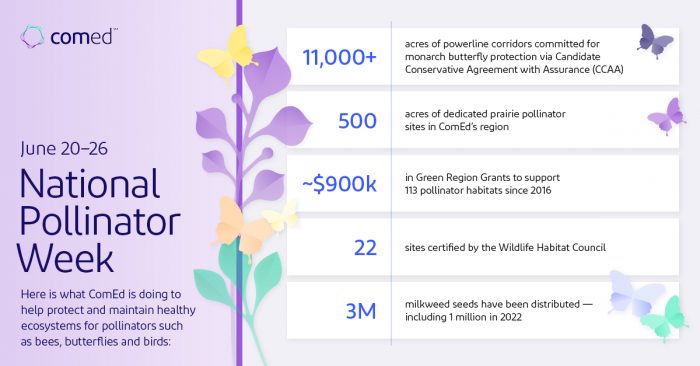
Here are Five Ways ComEd is Protecting Pollinators:
1. Safeguarding 4,000 acres of pollinator habitats along corridors under powerlines
ComEd announced with the University of Illinois Chicago (UIC) that it has reached a new milestone in pollinator habitat conservation, with nearly 4,000 acres of powerline corridor land now deemed pollinator habitats. Efforts to conserve pollinator habitats are part of ComEd’s long-term commitment to preserving 11,700 acres of utility-owned land by 2025. This effort is coordinated as part of the U.S. Fish and Wildlife Service’s CCAA initiative to raise awareness and expand conservation efforts nationwide for habitats that support the monarch butterfly, which is at risk of extinction.
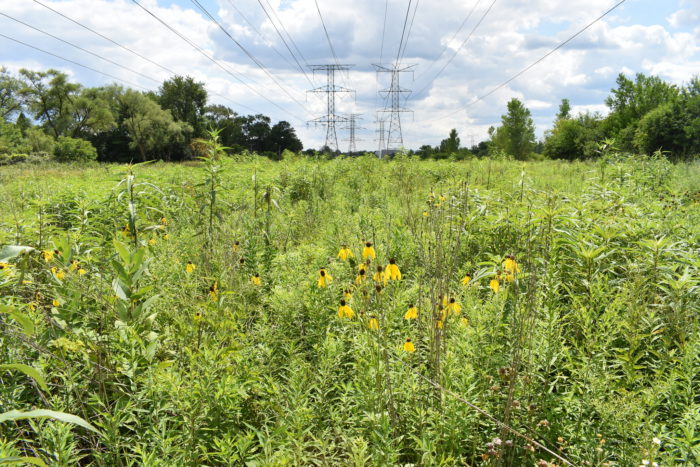
2. Distributing three million milkweeds to protect monarch butterflies
Over the last couple of years, ComEd has distributed two million milkweed seeds and is committed to distributing one million more in 2022, as it continues to establish more monarch habitats across the region. Milkweeds are plants that can be eaten by monarchs and caterpillars. In the last 20 years, the population of monarch butterflies has declined significantly, putting the species at risk of extinction. A primary cause of this decline is the loss of habitat containing native flowering plants that butterflies need for food and breeding, including milkweed species.
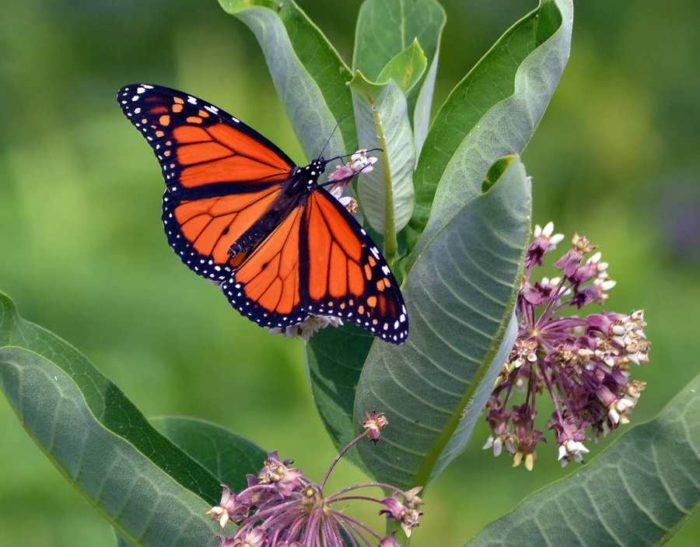
3. Hosted honeybee hives on ComEd right of way (ROW) land
For the past two years, ComEd has hosted honeybee hives on its right of way (ROW) land to raise awareness about the urgent need to promote pollinator populations and their valuable contributions to the ecosystem. Honeybees are critical to the pollination of crops, but due to human behaviors, such as climate change and overuse of pesticides, bee populations are at risk due to the loss of suitable habitats. In 2021, ComEd donated 120 jars of honey collected from its beehive to a local food pantry. The bees will soon return for the third year of the program.
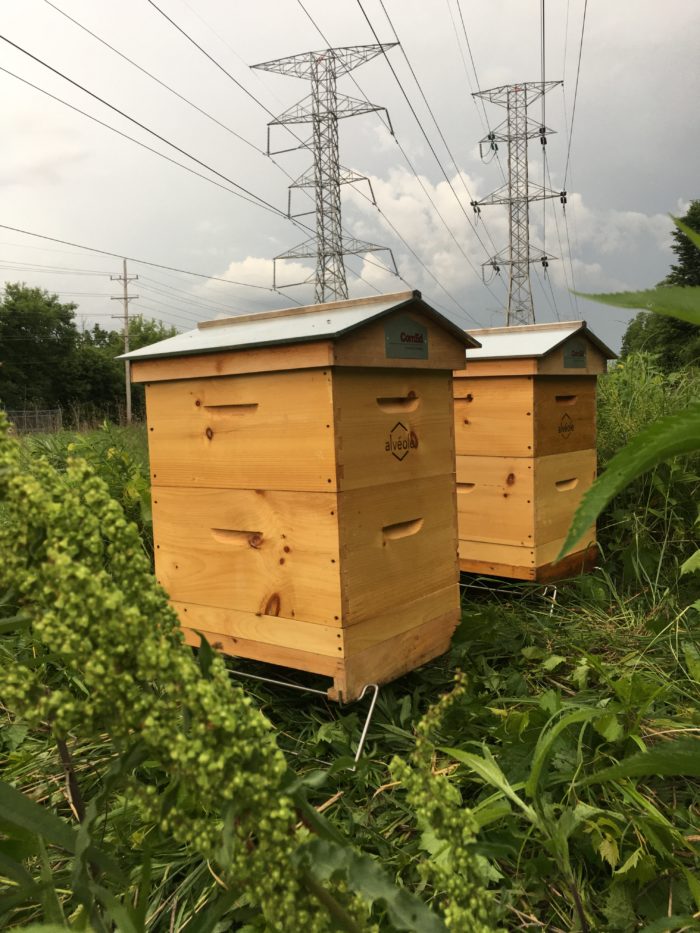
4. Building a certified Pollinator Garden at a ComEd office location
Since 2018, ComEd’s Operations Control Center (OCC) has maintained a sustainable garden at its headquarters property in Joliet. That garden recently received the Conservation Foundation’s Pollinator Garden Certification, which states that the property “improves habitat for wildlife.”
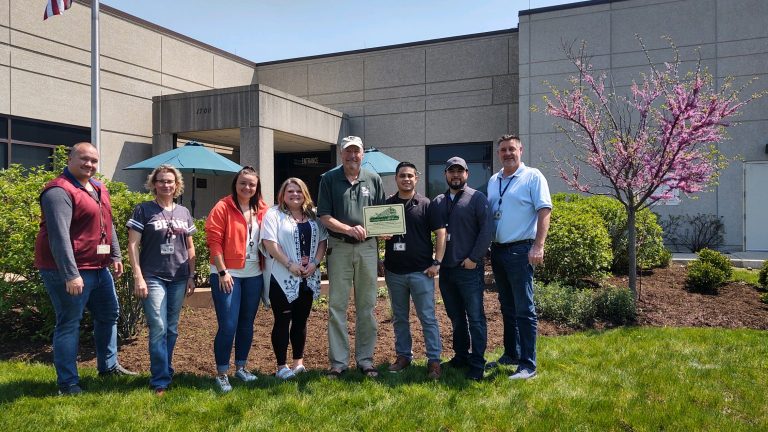
5. Conserving more than 500 acres of High-quality Prairie
Since 1994 ComEd has restored 500 acres of natural prairie habitat in Illinois on sections of transmission rights-of-way. The high-quality Prairie sites are home to rare native plants and rare species. This effort helps to sequester carbon dioxide, prevent runoff and improve water quality while restoring wildlife habitats and protecting pollinators.
Want to know what’s even sweeter? These prairies welcome kids for field trips to learn more about protecting habitats for pollinators.

With pollinator numbers dwindling down due to losing resources to rich food supply and healthy habitat environments, you’d better bee-lieve ComEd will continue its eco-friendly efforts.
Progress is underway on Gotion’s new gigafactory under construction in Manteno, which later this year, will start to produce itsRead More
Across the country, when an electric line is down or a transformer needs work, the crews that come out toRead More
The auditorium at ComEd’s Chicago Training Center saw a rising voltage of girl power as more and more young womenRead More
